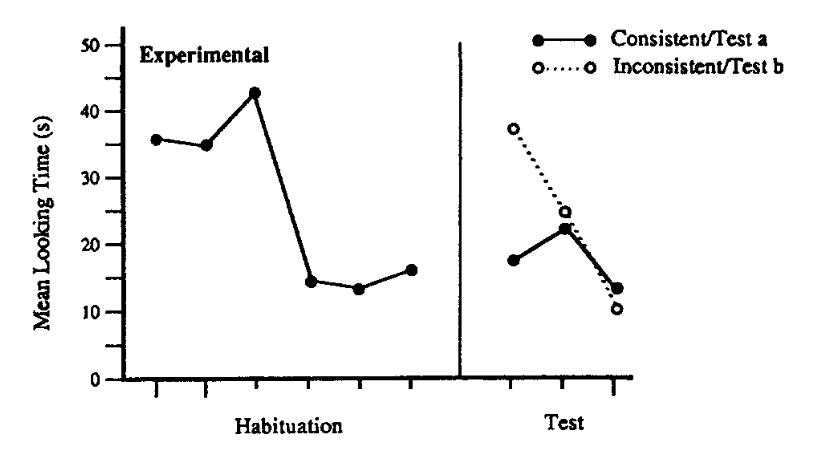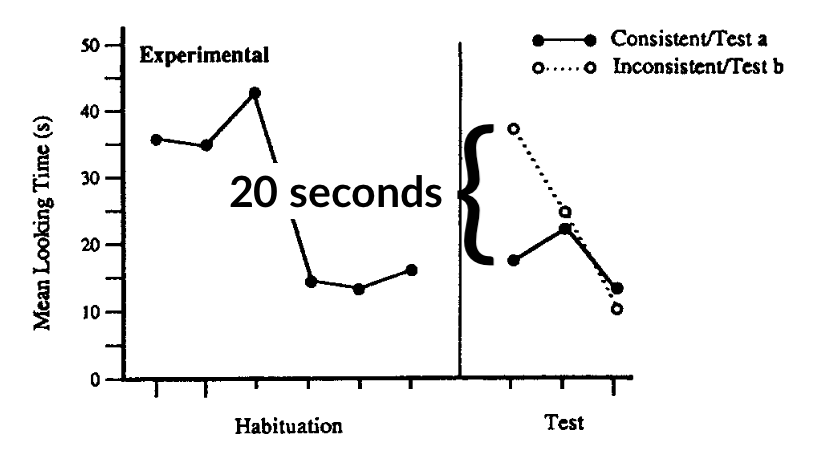Click here and press the right key for the next slide.
(This may not work on mobile or ipad. You can try using chrome or firefox, but even that may fail. Sorry.)
also ...
Press the left key to go backwards (or swipe right)
Press n to toggle whether notes are shown (or add '?notes' to the url before the #)
Press m or double tap to slide thumbnails (menu)
Press ? at any time to show the keyboard shortcuts
A Conjecture about Metacognitive Feelings




Spelke, Breinlinger, Macomber, & Jacobson (1992, p. figure 6 (part))
feeling of surprise
‘the intensity of felt surprise is [...] influenced by [...]
the degree of the event’s interference with ongoing mental activity’
Reisenzein et al, 2000 p. 271; cf. Touroutoglou & Efklides, 2010
synchronic
early-developing,
automatic process
↓
???metacognitive feeling
↓
looking duration
(v-of-e or dishabituation)
early-developing,
automatic process
↓
???
metacognitive feeling
+ learnt associations
↓
verbal response
(or manual search, ...)
‘metacognitive feelings ... allow a transition from the implicit-automatic mode to the explicit-controlled mode of operation.’
Koriat, 2000 p. 150
Conjecture:
Metacognitive feelings
connect developmentally unchanging, fast processes
for tracking objects and minds
to slow processes.
Predictions:
metacognitive feelings of surprise in adults
will also have task-irrelevant effects on
infants’ performance in violation-of-expectation tasks.